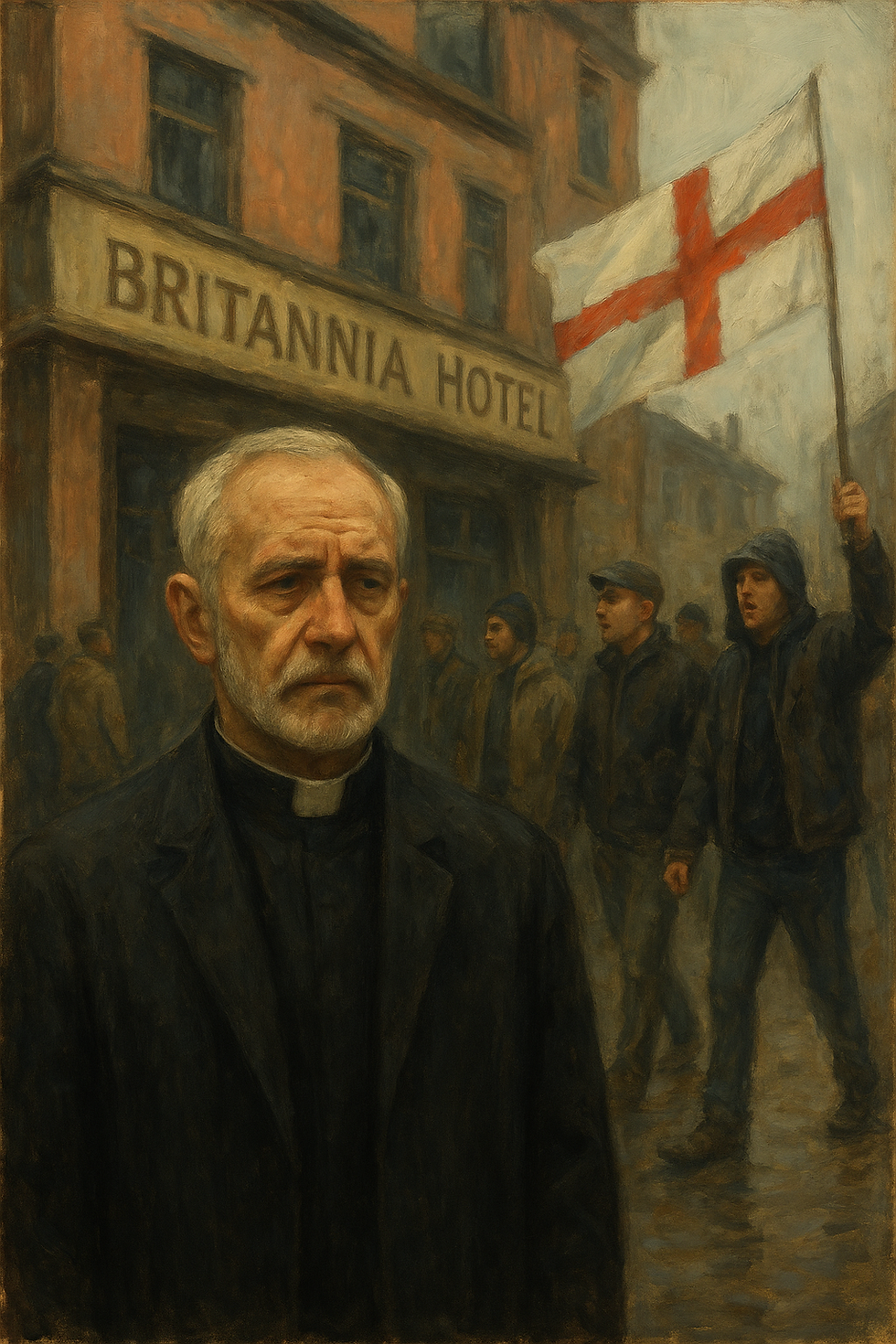East of Eden: Britannia
- Jon Swales
- Sep 14
- 2 min read

Redminster bears its wounds—
mills rusting,
shops boarded,
estates sagging under years of neglect.
At the bypass sits the Britannia Hotel,
a faded monument to better nights,
now a warehouse of waiting.
Inside, the air is stale.
Boiled cabbage from the kitchen,
bleach from the corridors,
the flat glow of TVs running the same channels.
Men pace,
smoke by the bins,
stare at ceilings.
No children here,
no laughter—
just the heavy silence of exile.
The priest learns names.
Ahmed, who taught history.
Maryam, who left her village and has not heard since.
Javed, who smokes and rarely speaks.
Names become prayers,
prayers become burden.
On Saturdays the street splits.
On one side, flags raised,
chants sharp,
Tommy Robinson’s voice crackling from a loudspeaker.
On the other, placards of hope not hate—
but the priest notices
that some seem to relish the clash,
voices pitched to provoke.
It is a powder keg,
fear against fury,
two sides locked in slogans.
The priest prays for rain.
Not only because the dry ground needs it,
but because rain scatters the crowds,
gives space to breathe.
Next day, at his MDR at the Diocese of Hatherleigh,
the bishop leans forward,
kind but steady.
“What’s on your mind?”
The priest shakes his head.
“It’s complex.
Borders matter,
budgets creak,
the NHS is breaking.
Not all in that hotel are fleeing war,
some chase opportunity.
But many are—
fleeing bombs,
persecution,
the knock on the door at night.
And I know this:
if it were me,
if it were my children,
I’d do the same.
I’d cross seas,
take risks,
knock on foreign doors,
just to find safety.”
The bishop listens,
says softly,
“Hold Christ at the centre.
And remember you don’t walk it alone.”
That evening, outside church ,
a man waves a St George’s flag.
“We work hard,
but they don’t care.
Them up there,
us down here.
Now strangers get housed before our kids.
Tell me, Father—
is that fair?”
The priest doesn’t argue.
Doesn’t trade slogans for slogans.
He asks instead,
“What’s your name?”
That night, in drizzle,
he stands outside Brittania.
Through curtains,
men pace,
one presses his forehead to the glass,
watching rain trace its slow lines.
This is not home.
This is storage.
And he prays in the dark:
“Lord Jesus,
the conversation lacks nuance,
the slogans eat the air,
and the people are in pain.
Pain amongst everyday folk of Redminster.
Pain in the hotel.
Some flee war,
some flee hunger,
some flee the small deaths of hopelessness.
And I know—
I would do the same.
I don’t have the answers.
Teach me to carry names.
Teach me to love
the neighbour,
the other,
the migrant,
those who shout,
those with names,
let me love
for love is the way.”







Comments